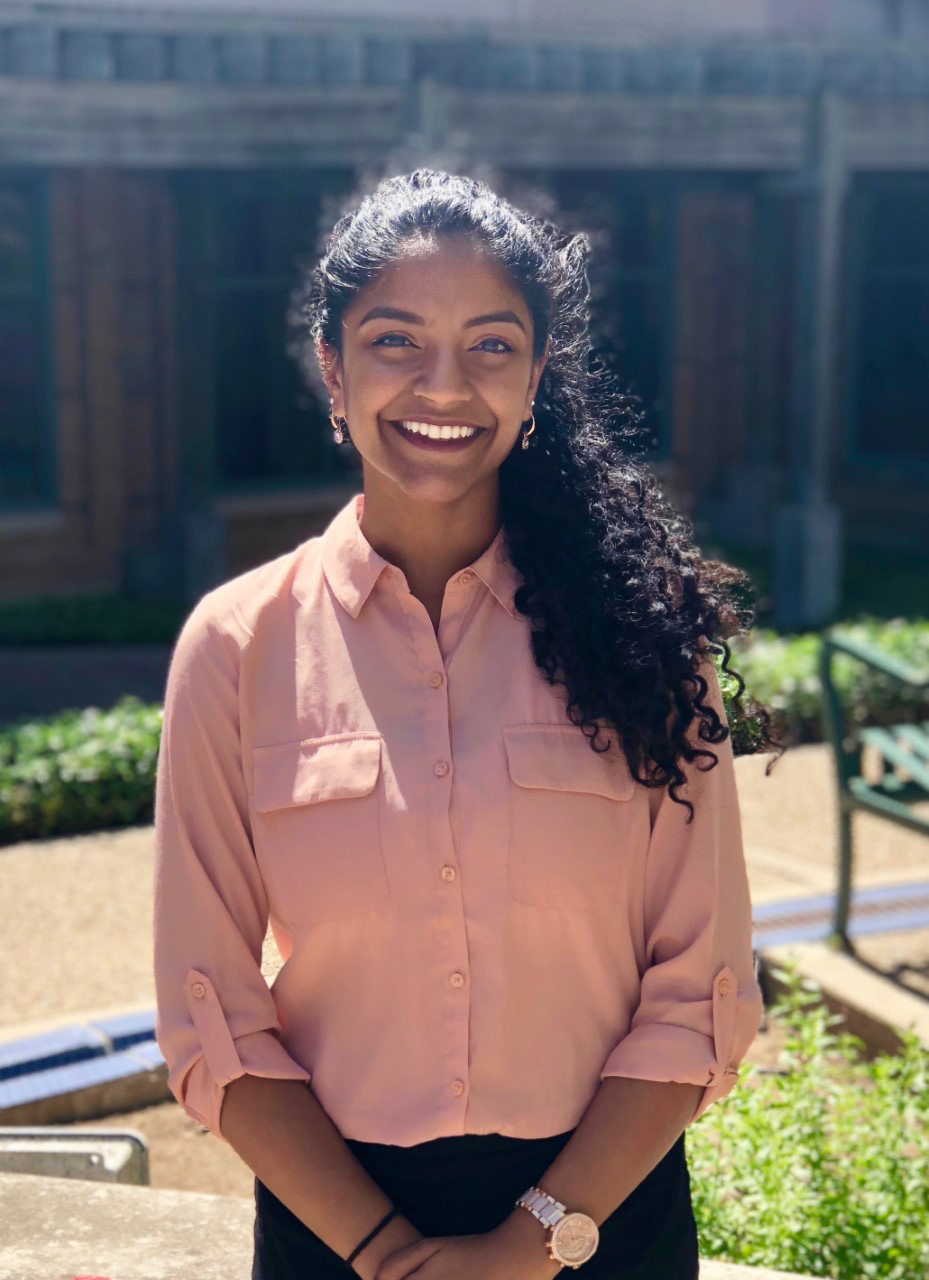Health Leadership Apprentice Program coordinator Landon A. Hackley authored the following post.
Deepanjli Donthula is a third-year neuroscience student with a minor in history who joined the Health Leadership Apprentice Program (HLA) in spring 2018. Not only is she a University of Texas at Austin student, but she is also the creator of a class at the university: Communications Strategies for the Pre-Health Professional.
Institutionalized at UT Austin in fall 2018, Donthula’s communications class is the first of its kind to focus on improving the communication abilities of aspiring health professionals of all kinds. It is offered to honors students as a seminar class in the College of Natural Sciences as a way to build their speaking, listening and teamwork abilities in the health setting.
The idea came from Donthula’s experience shadowing as a freshman, where she saw a palliative care physician talk to a family about taking a loved one off of life support. “It got me thinking about my own capabilities,” she said. “I really began to doubt my ability to have that kind of difficult conversation — one that is pertinent to every aspect of medicine.”
Donthula decided to look into the matter further by researching existing programs that prepare students for medical school.

“Training for health care professionals has long emphasized technical knowledge and assumes that communication skills come naturally,” she said. “It has become increasingly clear in the health care community that nontechnical skills such as effective communication, cultural humility and things of that sort have become increasingly important but haven’t been taught [in school] as such.”
To help prepare students for working in the team setting that is health care, she created a class that she described as “a training for health care professionals to practice these exact communication skills they need to be successful.”
Donthula’s class brings in health professionals of all kinds to “introduce students to difficult conversations in palliative care, emergency medicine, social work and more.” The class is set up as a Socratic-style intergroup dialogue that includes medical improv activities so students can get a better taste of what they may encounter throughout their careers and practice their skills in realistic settings.
“We even brought in role-playing actors to talk about their journey dealing with doctors as parents of a pediatric patient,” Donthula said. “It gives students the opportunity to think about things they wouldn’t normally encounter in school that they may see in their future as medical professionals.”
While Donthula’s class has already seen great interest and success, she wanted to open the course up to more natural sciences students while increasing the robustness of the class — and she’s accomplished just that. Starting in fall 2019, Donthula’s class will go from a one-credit-hour pass/fail seminar class to a full three-credit-hour, graded communications class open to all students in the College of Natural Sciences.
“The Health Leadership Apprentice Program helped me build confidence in my idea,” Donthula said. “My main takeaway throughout the program was from my interactions with Steve Steffensen, David Ring and other health care professionals.” She said it even began in her interview for the program, when Steffensen and Claire Zagorski, a former HLA program coordinator, reacted very positively to her initial pitch of the communications class. “I was kind of taken aback by the amount of support and confidence they had in me,” she said. It was the push she needed to pursue her idea.
When Donthula isn’t studying or reshaping the future of UT Austin students’ education, she enjoys volunteering at Plano Animal Services Department near her home in Dallas. She said her time there brings her great joy and fun, especially when she gets to play with her furry friends.
If you are interested in Donthula’s class, reach out to an HLA program coordinator (Landon Hackley or Kelsey Mumford) to learn more.